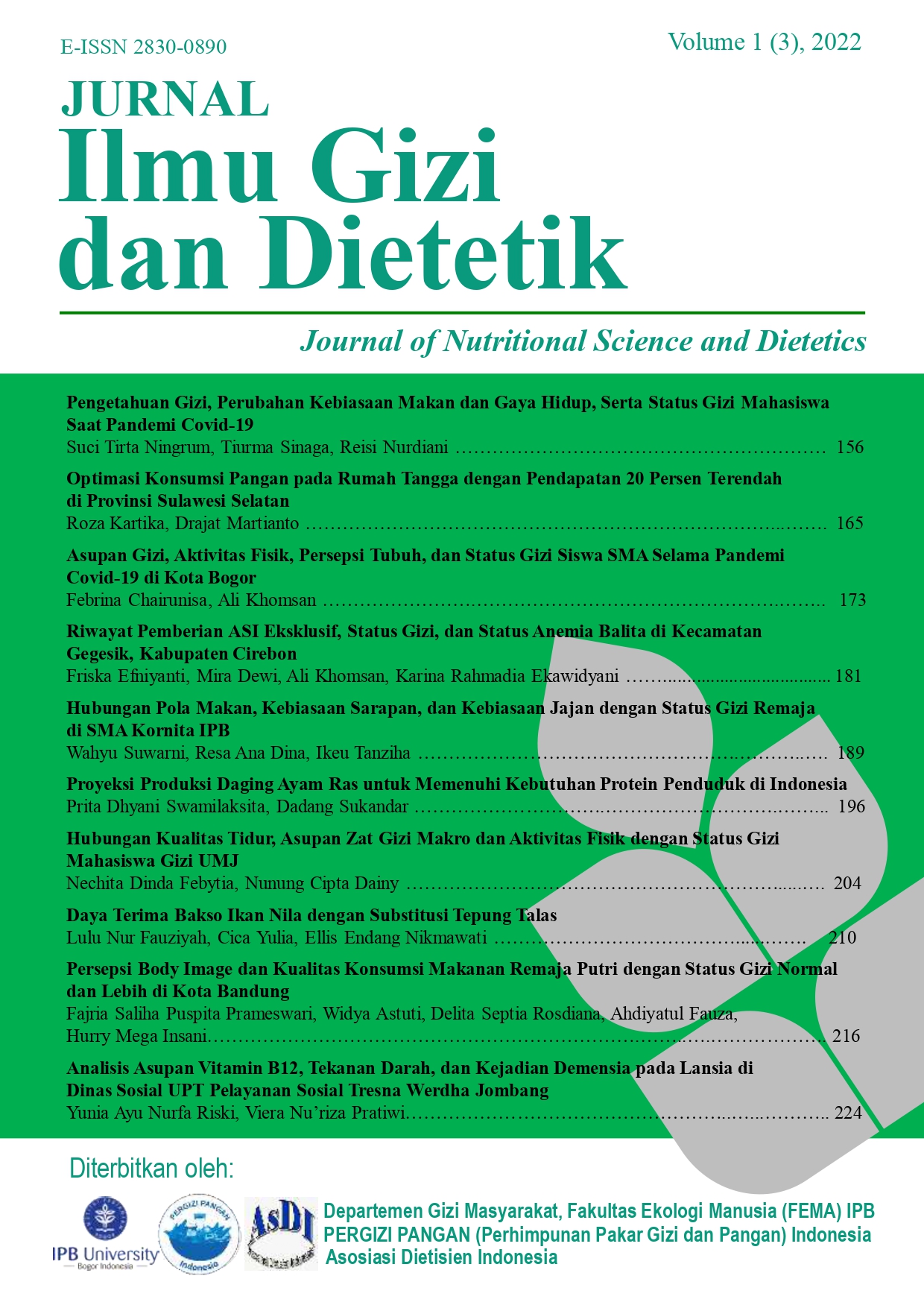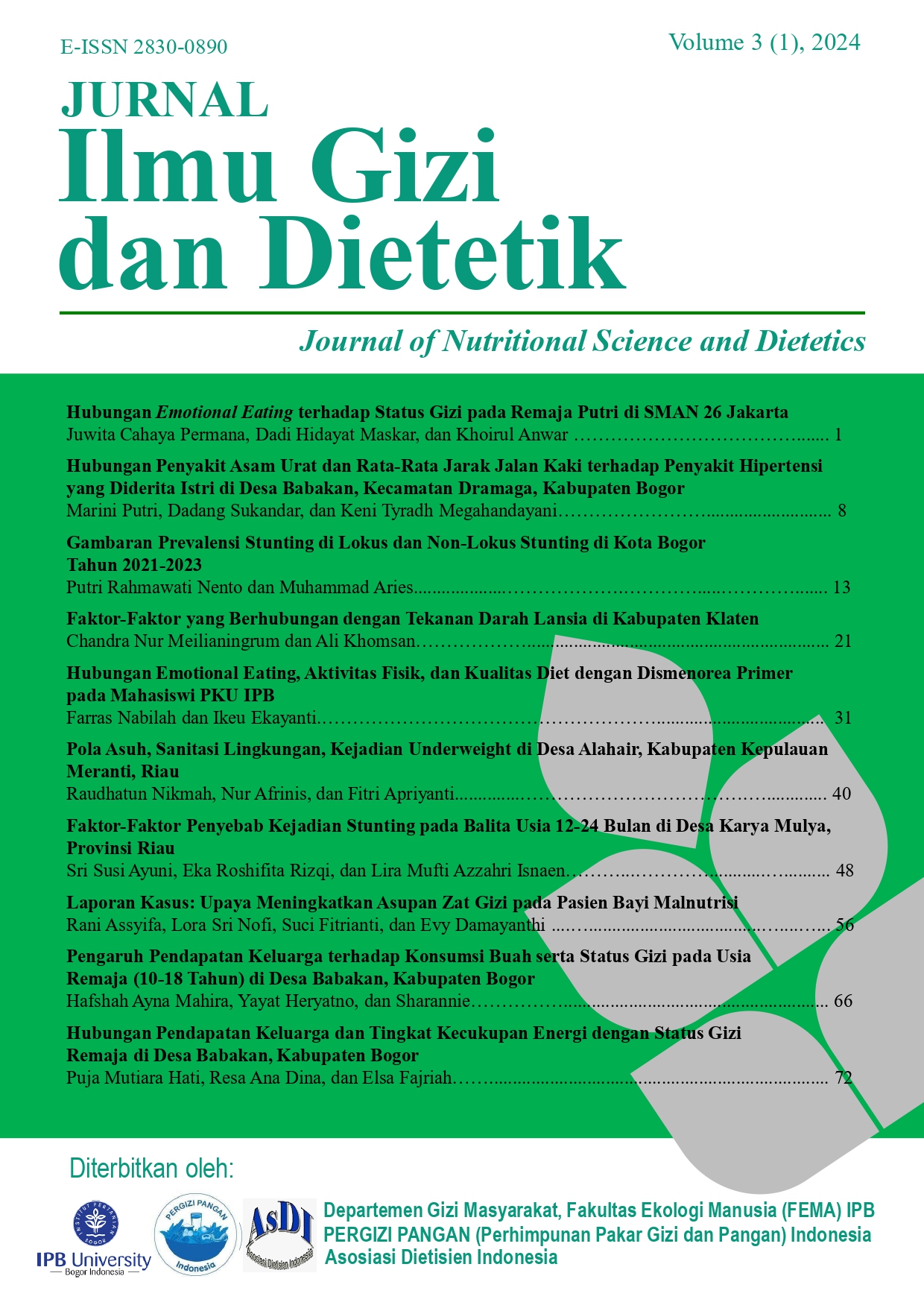Hubungan Pola Makan, Kebiasaan Sarapan, dan Kebiasaan Jajan dengan Status Gizi Remaja Di SMA Kornita IPB
Correlations between Consumption Patterns, Breakfast Habits and Snacking Habits with Nutritional Status of Adolescents at Kornita IPB Senior High School
DOI:
https://doi.org/10.25182/jigd.2022.1.3.189-195Keywords:
breakfast habits, consumption patterns, nutritional status, snack habitsAbstract
Unhealthy consumption patterns cause a negative impact on health. Regularly taking breakfast can improve health while skipping breakfast will trigger to consumeof high-calorie snacks. This research aimed to analyze correlations between consumption patterns, breakfast habits, and snacking habits with the nutritional status of adolescents. The design of this research is a cross-sectional study with 69 subjects selected by purposive sampling. Data was collected through google forms, online interviews, and measurements of height and weight. The results showed that most of the subjects' consumption patterns (55.1%) were classified as poor, most of the subjects (56.5%) always had breakfast, and (55.1%) the subjects snacked rarely. Based on the results of this study, there was a significant correlation between consumption habits of fruit (p=0.0023; r=0.273), consumption habits of milk (p=0.049; r=0.238), protein adequacy level (p=0.025; r=-0.270), carbohydrate adequacy level (p=0.005; r=-0.234), quality of food consumption (p=0.017; r=0.287), breakfast contribution (p=0.002; r=-0.374) with nutritional status. There is no significant correlation between breakfast habits, and snacking habits with nutritional status. In addition, there is no significant correlation between breakfast habits and snacking habits.













2.png)

